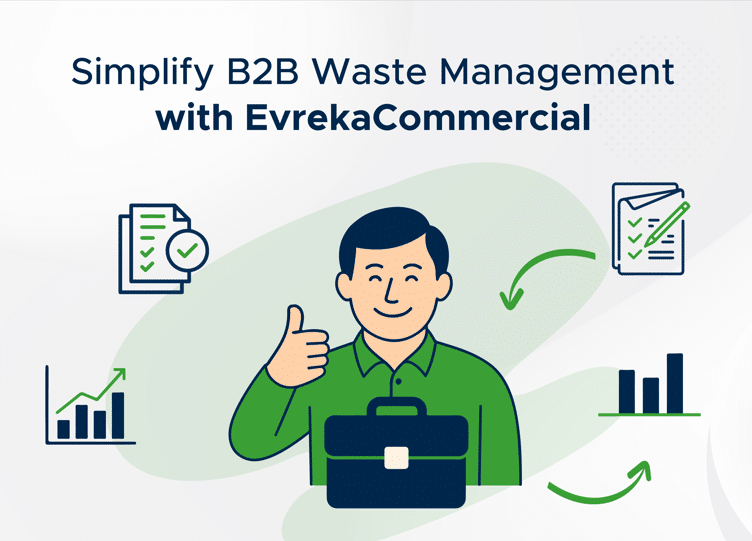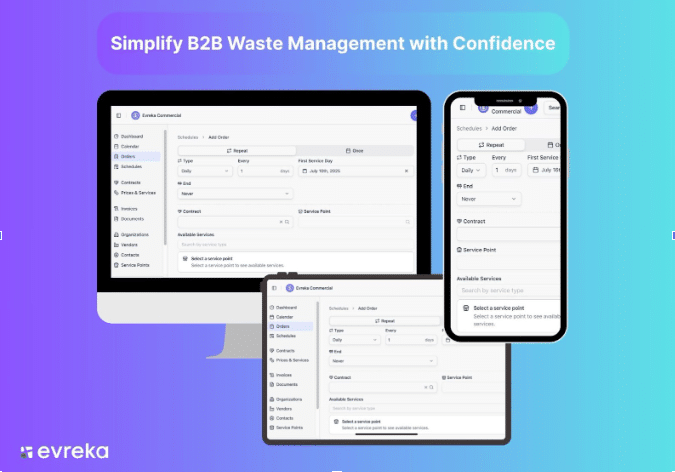Waste & material traceability solution for sustainable facilities

Managing commercial waste operations is not getting easier. For companies that serve cafés, factories, offices, or retail chains, every client has different needs. Service frequencies, pricing structures, subcontractors, and SLAs often vary from one site to the next.
When operations rely on spreadsheets, emails, or outdated CRMs to handle all of this, things quickly get messy.
Let’s take a closer look at why manual planning and scattered data create challenges — and how centralized visibility can make commercial operations more efficient.
Planning B2B waste services manually can feel manageable at first. But as your commercial portfolio grows, so does the complexity. Field managers and coordinators often spend hours updating Excel sheets, chasing vendors, and adjusting schedules.
This process isn’t just time-consuming — it’s fragile. A small error in planning can lead to a missed pickup, a billing delay, or an unhappy client. As more subcontractors get involved, it becomes even harder to keep track of who did what, when, and where.
Another common issue? Data living in too many places. Contract terms might be stored in PDFs. Service requests may come through email. Reports are often built manually — and late.
Without a single source of truth, operations become reactive. Teams can’t answer key questions like:

Visibility isn’t just about convenience — it’s the foundation for smarter decision-making. With centralized systems, you can manage all client data, sites, vendors, and pricing in one place.
Add AI-powered dashboards on top of that, and you start to see trends: which sites are the most costly, which vendors are the most efficient, or which types of services lead to more disputes.
With the right insights, waste companies can improve planning, reduce manual errors, and serve their clients more consistently.
For companies working with subcontractors, traceability is essential. When something goes wrong — like a missed pickup or an overflowing bin — you need to know what happened.
Using real-time data like GPS, time stamps, and even photos helps teams confirm whether a service was completed properly. It also helps back up billing and improves accountability across your network.
Manual tools can’t keep up with the pace and complexity of modern commercial waste operations. From missed handovers to unclear costs, the risks are high — and the inefficiencies add up.
EvrekaCommercial was designed to solve these problems. By centralizing service data, visualizing cost trends, and providing full subcontractor traceability, it helps waste companies gain control, reduce errors, and plan smarter.
If you’re still trying to manage commercial waste clients with spreadsheets and scattered systems, it might be time to explore a more reliable solution.
Evreka’s all in one platform empowers waste management companies worldwide with smart, end-to-end digital solutions tailored to operational excellence.
Request a demo today and let’s make a difference together!